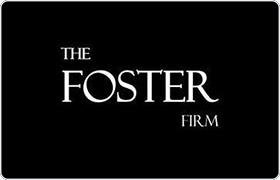Navarre Felony Lawyer, Florida
Sponsored Law Firm
-
 x
x

Click For More Info:
-
The Foster Firm
42 Business Centre Drive Suite 301 Miramar Beach, FL 32550» view mapCriminal Defense Law We Will Protect Your Rights!
Our law firm has been operating for more than 15 years and our team has numerous years of experience between them, to ensure you get the best legal advice possible.
800-940-3710
Not enough matches for Navarre Felony lawyer.
Below are all Navarre Criminal lawyers.
Robert Glenn Collins
Real Estate, Family Law, Criminal, Elder Law, Car Accident
Status: In Good Standing Licensed: 28 Years
Timothy Alan Weaver
Real Estate, Government, Criminal, Bankruptcy & Debt
Status: In Good Standing Licensed: 31 Years
Marsha L Weaver
Employee Rights, State and Local, Criminal, Government
Status: In Good Standing Licensed: 31 Years
Donald Keith Kilpatrick
Family Law, Divorce & Family Law, Criminal, Personal Injury
Status: In Good Standing
Yancey Frank Langston
Power of Attorney, Employee Rights, Divorce & Family Law, DUI-DWI
Status: In Good Standing
Patrick Michael Cusack
Foreclosure, Lawsuit & Dispute, Federal Trial Practice, Criminal
Status: In Good Standing Licensed: 39 Years
 James J. Foster Miramar Beach, FL
James J. Foster Miramar Beach, FL Practice AreasExpertise
Practice AreasExpertise
